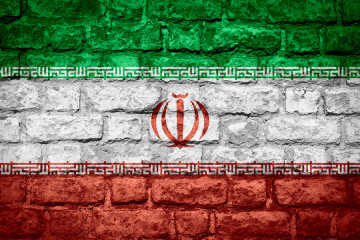Israel’s Once-Thriving Economy Is Catching Up on Falling Behind

published May 24th 2016, 4:00 pm, by David Wainer
(Bloomberg) —
As most developed countries reeled from housing busts and collapsing financial systems in the wake of the 2008 financial crisis, Israel defied the chaos with strong annual economic growth, a stable financial system and robust exports.
It’s since caught up on falling behind. With exports tumbling and annualized inflation stuck below zero for 20 months, growth in 2015 slowed to just over 2 percent from 5 percent or more five years ago. It weakened to 0.8 percent in the first quarter of this year. Lackluster expansion may be the new normal, says Finance Ministry chief economist Yoel Naveh, due to low Arab and ultra-Orthodox Jewish participation in the workforce, a labor shortage in high-tech and weaker demand for Israeli exports.
Four charts illustrate the challenges to Israel’s growth prospects.
Lagging Spending
Israel is a relatively big spender on defense but lags behind other members of the Organization for Economic Cooperation and Development when it comes to outlays on education, hospitals and transportation. The central bank and other prominent economists say it needs to boost spending on outdated infrastructure and education and training to become more competitive and productive.
Falling Productivity
Today, the Israel known for its technological prowess may be looking at a bleaker future. Half of all first-graders won’t be educated for a modern workforce because ultra-Orthodox Jewish boys’ schools focus on religious texts and Arab schools are underfunded and poorly staffed, according to economist Dan Ben-David of the Shoresh Institution. Domestic industries are concentrated in a small number of hands, and regulation is onerous: The World Bank ranks Israel 53rd of 189 countries in ease of doing business, below Kazakhstan and Moldova.
Soaring Currency
Natural gas discoveries and a current-account surplus, while generally positive for the economy, have hurt exports by strengthening the shekel. The shekel is trading near a record high against a basket of currencies, and the central bank, which cut the benchmark rate to a record low 0.1 percent last year, occasionally buys dollars to weaken it.
Red Tape
Manufacturers often complain that over-regulation is scaring away investors. In recent years, growth of investments in machinery and equipment has slowed. Bank Leumi’s chief economist Gil Bufman says Israel should boost incentives for businesses by allowing machinery and equipment to be depreciated more quickly so companies can cut their tax bills.
–With assistance from Gabrielle Coppola. To contact the reporter on this story: David Wainer in Tel Aviv at dwainer3@bloomberg.net To contact the editors responsible for this story: Alaa Shahine at asalha@bloomberg.net Amy Teibel, Stuart Biggs
copyright
© 2016 Bloomberg L.P







No Comment